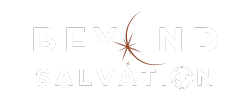8 Must-Read Books for Career & Personal Development
Building on our earlier exploration of inspiring Christian books, let’s now look at a collection of career and personal development books that can help us grow in other areas of life. These books provide practical insights into reading better, managing finances, staying productive, and adapting to change. Together with the lessons from Christian books, they offer a well-rounded approach to personal and professional success. 1. “How to Read a Book” by Mortimer J. Adler and Charles Van Doren This classic guide introduces readers to the art of analytical reading, teaching techniques to engage with texts more deeply and extract maximum understanding. Adler and Van Doren outline four levels of reading—elementary, inspectional, analytical, and syntopical—each building upon the other to enhance comprehension and critical thinking. Why Read It? By mastering these reading techniques, you can approach complex materials more effectively, improving both personal and professional learning endeavors. Key Highlight: “The more active reading is, the better it is.” 2. “The Richest Man in Babylon” by George S. Clason This classic presents financial advice through a series of parables set in ancient Babylon. Clason imparts timeless lessons on wealth accumulation, financial planning, and prudent investing. Why Read It? The book’s straightforward principles provide a solid foundation for personal financial management, making it a must-read for those seeking financial independence. Key Highlight: “A part of all you earn is yours to keep.” Personal Reflection: After reading “The Richest Man in Babylon,” I embraced the principle of paying myself first by saving at least 10% of my income. This disciplined approach enabled me to purchase a MacBook, a valuable investment in my career. Although I faced distractions that led me off track, I’m committed to reinstating this habit in 2025. The timeless wisdom in this book has been instrumental in my financial journey, and I plan to revisit its lessons regularly to reinforce sound financial practices. 3. “Think and Grow Rich” by Napoleon Hill Napoleon Hill’s seminal work distills the success secrets of prominent individuals, emphasizing the power of thought, desire, and persistence in achieving personal and financial goals. Why Read It? The book offers a mindset blueprint for success, encouraging readers to harness their thoughts and beliefs to manifest their aspirations. Key Highlight: “Whatever the mind can conceive and believe, it can achieve.” Personal Reflection: This year, my primary objective is to cultivate a mindset that serves my aspirations. Inspired by the biblical proverb, “As a man thinketh, so is he,” I recognize the profound impact of thoughts on one’s reality. “Think and Grow Rich” offers a blueprint for harnessing the power of thought to achieve success. My goal is to read this book at least twice and diligently complete the assignments to internalize its principles and align my mindset with my ambitions. 4. “Who Moved My Cheese?” by Spencer Johnson Through a simple yet profound parable, Johnson explores how individuals react to change, offering insights into adaptability and the importance of embracing life’s uncertainties. Why Read It? This quick read provides valuable lessons on navigating change, making it particularly relevant in today’s fast-paced world. Key Highlight: “What would you do if you weren’t afraid?” Personal Reflection: Change is an inevitable constant in life. Reflecting on the insights from “Who Moved My Cheese?”, I acknowledge that even when circumstances seem static, subtle shifts are occurring. This year, I aim to stay attuned to these changes—”smelling the cheese”—to detect when it’s becoming outdated. By anticipating and embracing change, I can adapt proactively, ensuring that I remain aligned with evolving realities and continue to thrive amidst transformation. 5. “Getting Things Done: The Art of Stress-Free Productivity” by David Allen David Allen introduces a comprehensive system for enhancing productivity and managing tasks efficiently, reducing stress, and improving focus. The GTD methodology involves five key steps: capture, clarify, organize, reflect, and engage, enabling individuals to manage their commitments effectively. Why Read It? Implementing Allen’s GTD methodology can lead to increased productivity and a clearer mind, essential for balancing personal and professional responsibilities. Key Highlight: “Your mind is for having ideas, not holding them.” Personal Reflection: This year is my year of maximum achievement; I am determined to get things done. As the Bible advises, “Redeem the time because the days are evil.” By adopting the GTD system, I aim to make the most of my time, ensuring that I manage tasks efficiently and maintain focus on my goals. This structured approach will help me navigate the complexities of daily life, reduce stress, and achieve a higher level of productivity. 6. “Atomic Habits: An Easy & Proven Way to Build Good Habits & Break Bad Ones” by James Clear James Clear delves into the science of habit formation, providing practical strategies for building and sustaining positive habits while eliminating detrimental ones. He emphasizes the power of tiny changes, suggesting that real change comes from the compound effect of hundreds of small decisions. Why Read It? The book’s actionable advice can lead to significant personal transformation through the aggregation of marginal gains. Key Highlight: “You do not rise to the level of your goals. You fall to the level of your systems.” Personal Reflection: To achieve both short-term and long-term goals, it’s essential to establish effective habits. “Atomic Habits” provides a framework for understanding and implementing habit formation. In the past, creating a dedicated “place of productivity” has been instrumental in building study habits. This year, I plan to design an environment that fosters productivity and supports the development of positive habits, enabling me to reach my objectives more effectively. 7. “The 7 Habits of Highly Effective People” by Stephen R. Covey Stephen R. Covey’s seminal work outlines a principle-centered approach for solving personal and professional problems. Covey presents a step-by-step pathway for living with fairness, integrity, service, and human dignity—principles that give us the security to adapt to change and the wisdom and power to take advantage of the opportunities that change creates. Why Read It? The book provides a holistic approach to personal and interpersonal effectiveness,
8 Must-Read Books for Career & Personal Development Read More »


